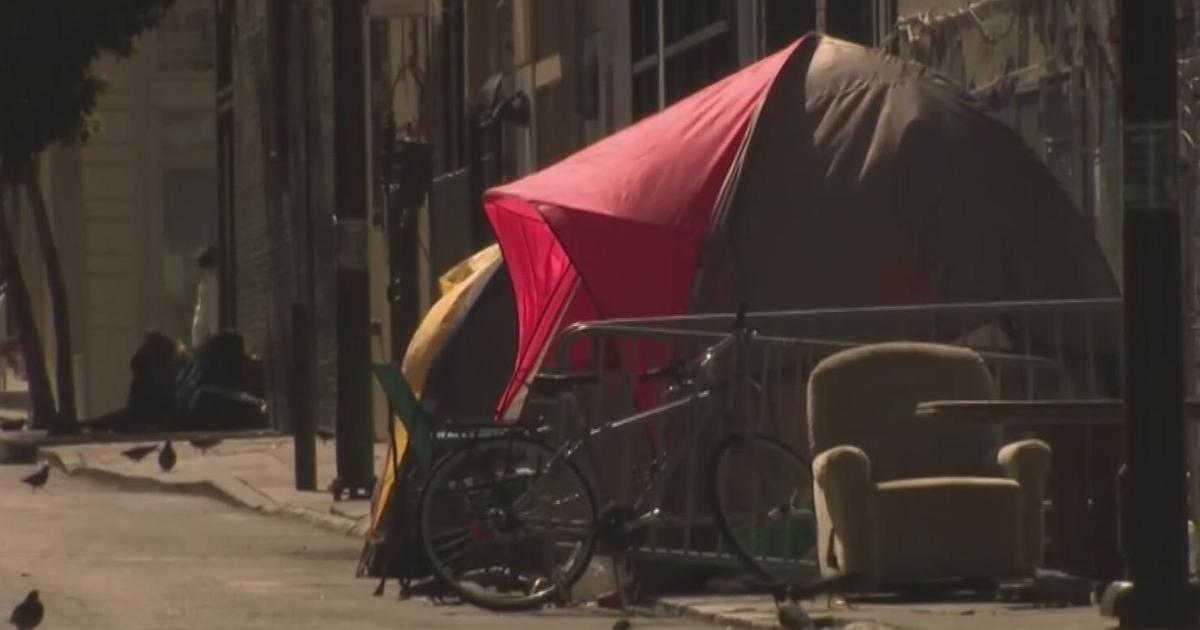San Francisco auto-theft arrest numbers remain low, even as more cars are being stolen
SAN FRANCISCO - Auto thefts are on the rise in many cities across the country, including San Francisco -- but in the Bay Area, arrest rates remain low.
Car thefts in San Francisco have gone up year after year since 2018, according to publicly-available SFPD data acquired by CBS News:
2018: 4,934 car thefts
2019: 5,115 car thefts
2020: 7,081 car thefts
2021: 7,476 car thefts
2022: 7,729 car thefts
This data reveals most cars stolen in San Francisco are eventually recovered -- about 75% of them in 2022 -- which is better than the national average. But as the number of car thefts has climbed, the arrest rate hasn't -- which stood at about 6% in 2022.
Someone recently tried to steal Katie Rodriguez's car. While they were unsuccessful, they caused a lot of damage in the process.
"The keylock on the driver's side was pretty smashed up. They went in through the back passenger window," she said. "It looked like someone took a hammer to it or something - there were slashes on the metal."
Rodriguez says she recently upped her car insurance a few weeks before her incident because she was anxious her car might eventually get stolen.
"Yeah, it's not ideal. I would like to not have to think that way, but it's just sort of that thing that you have grown to accept," she said. "I mean it's a well-known problem."
"What's the biggest challenge that we're all not aware of in taking care of this problem? Why is it going up so much? What's the driving force?" she said. "What's being done?"
CBS News Bay Area brought her questions to SFPD.
"It's hard to say if there is something specific that is driving it. It could be a number of factors," said Sgt. Kathryn Winters. "It's certainly a problem we're seeing throughout the city."
Winters says auto thefts often go hand-in-hand with other crimes, such as car break-ins and retail theft, which are two areas SFPD is keenly focused on right now.
"It's one of the many challenges that we have to address, and we only have so many resources right now ... I wouldn't say that it is lower on the priority list."
Winters says the number of auto thefts should go down as SFPD tackles other crimes that are tied to auto thefts.
"While it may not look like we're addressing auto theft individually or those who are trying to steal vehicles, a lot of our efforts on other crimes that intersect with auto theft are going to yield results ...The fact of the matter is most of the vehicles we recover, we recover them when they're unoccupied," Winters said of the arrest numbers.
Winters said that by nature, auto theft is a tough crime to solve. Auto thieves often use cars to get from point A to point B, sometimes to commit other crimes. Auto thieves also often switch license plates.
Another challenge SFPD faces is diminished staffing levels.
"Staffing can add to it. But it's one of the many challenges. Staffing means our officers don't have as much free time - especially those who like to go after stolen vehicles and find them and recover them," Winters said. "With staffing shortages they're going from call to call to call, so they're not always going down the street running license plate numbers and finding stolen vehicles that way."
Katie Rodriguez now has her car back, and life is back to normal. But when she parks her car, her mind isn't totally at ease.
"Yeah, I'm always worried that it's just going to be gone," she said.
Winters says it's critical that people file police reports when they are a victim of a crime, that way the department can have a clear picture of how to allocate resources. Rodriguez says she didn't initially file a report, but after our interview, said she would.



